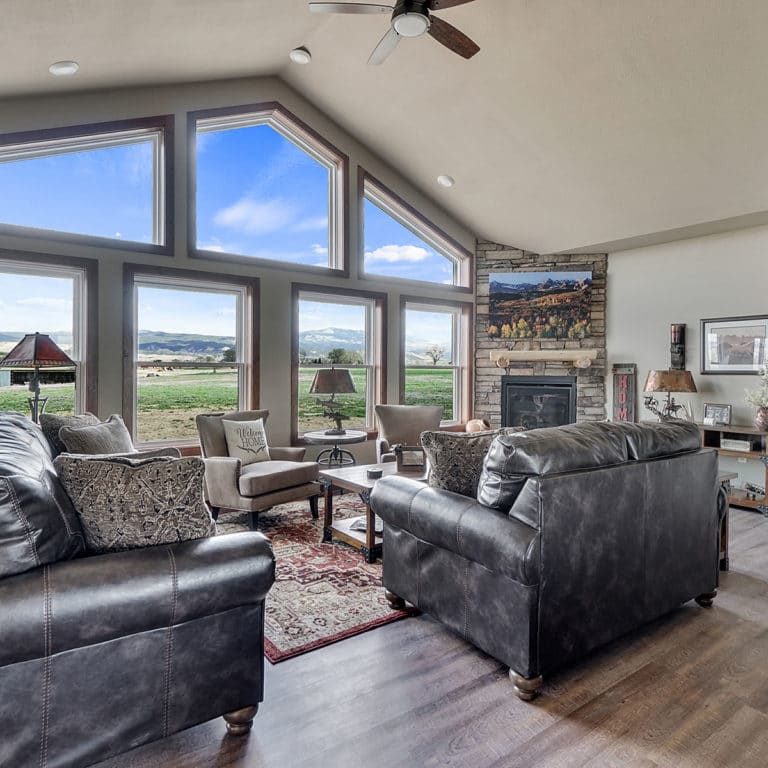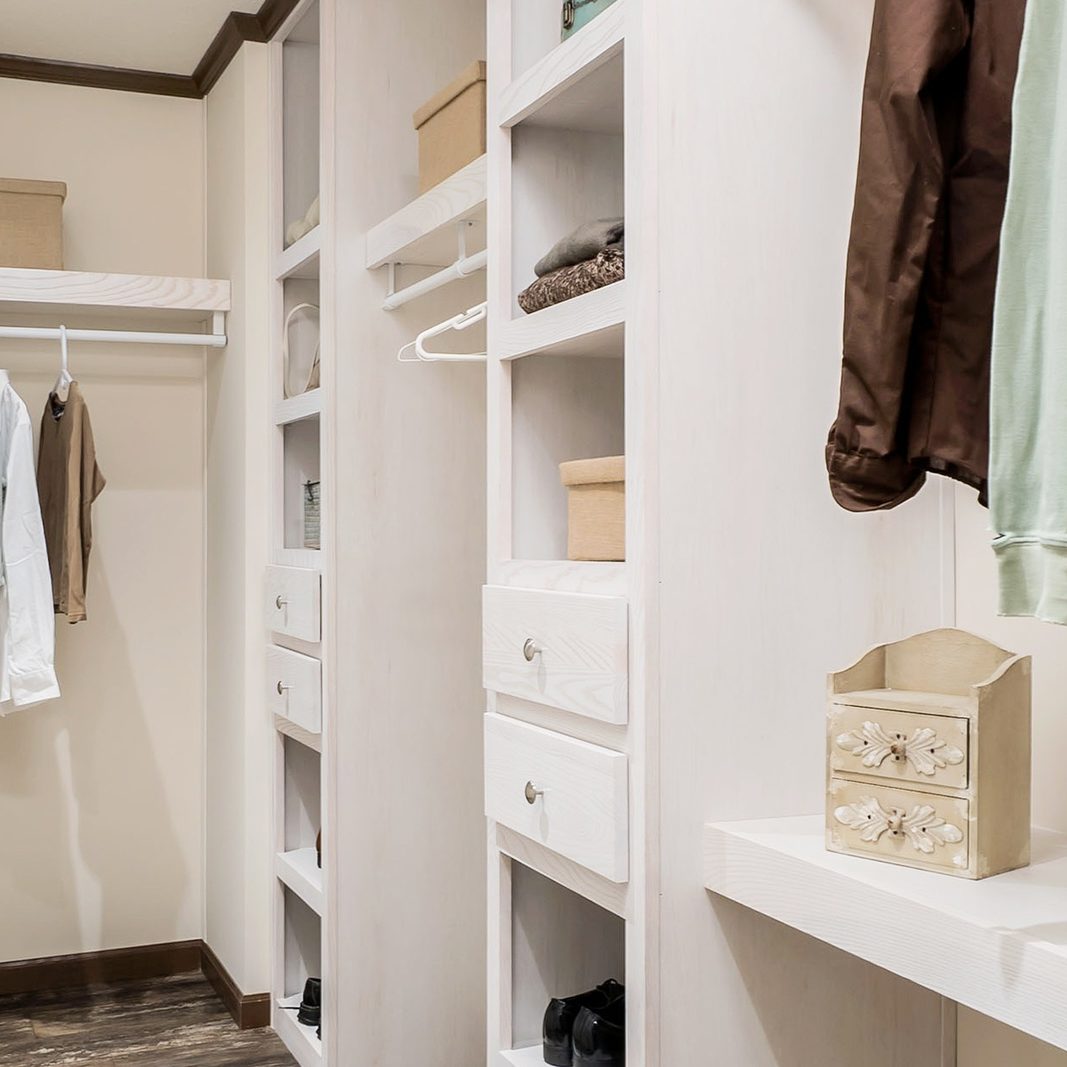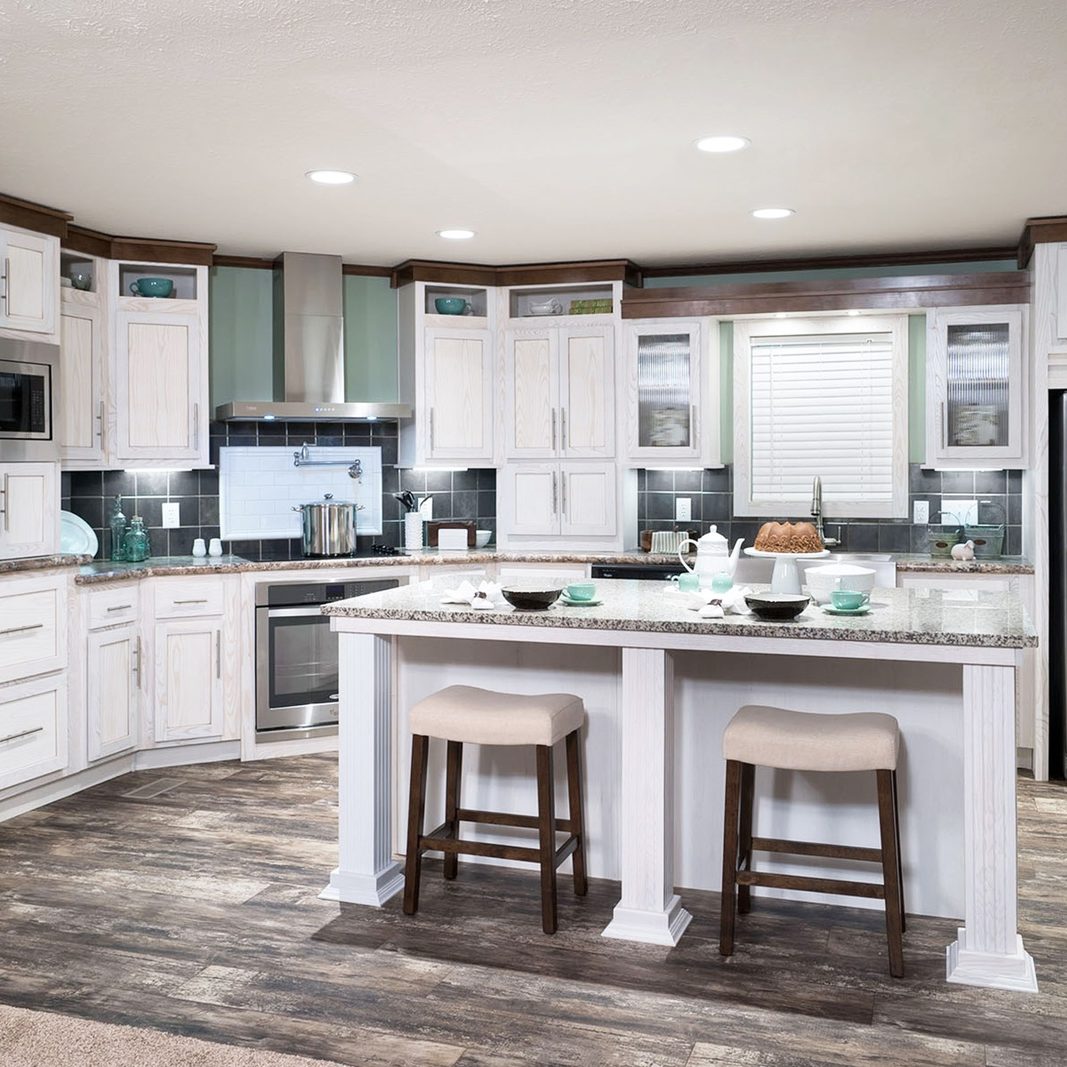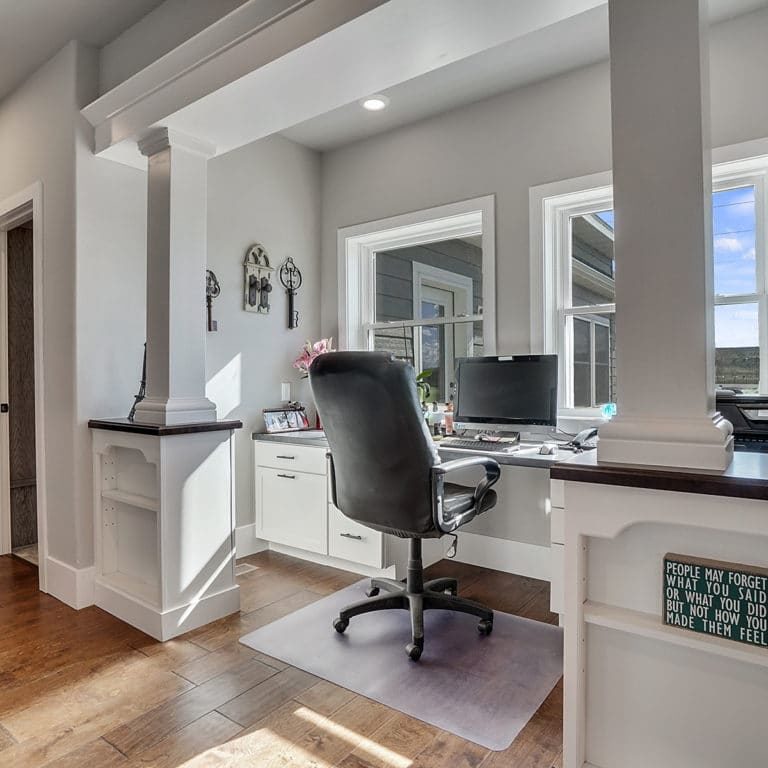Guide on How to Buy a
Modular Home
in Iowa & Minnesota
Modular homes are a great option for those who want to build their home without having to go through the traditional construction process. Modular homes are often constructed in a factory, which means they can be delivered to your property much quicker and more efficiently than a traditional home. In this article, we will cover everything you need to know about buying a modular home. Topics we’ll cover include price, delivery, and construction. We will also answer some of the most common questions people ask about modular homes.


What are modular homes?
Just what are modular homes? They are homes that are factory-built in pieces, or “modules”, and then shipped to the build site and assembled by a professional crew.
A common misconception about modular homes is there is no room for customization. Because they are factory built, they often get a “cookie cutter” stigma, which isn’t the case at all. In fact, modular homes can be constructed in all shapes and sizes with a wide variety of floor plans and design options. And because modular homes are constructed using many of the same materials as site-built homes, they have the ability to be just as energy-efficient—if not more efficient. Let Avenue of Homes help you customize a floor plan to meet your needs!
If you are thinking about building a new home, modular construction should definitely be on your home-building radar.

What are the benefits of modular homes?
Why modular? These homes offer many benefits and advantages including a shorter build time, increased quality control, and more cost-effective construction. Modular home construction offers several benefits over other types of home construction, including:
A shorter build time
Improved quality control
Reduced on-site disruptions
Precise manufacturing and building techniques that result in a higher quality product
A large variety of material and finish options to match your specific needs and preferences
We will discuss some of these advantage in more detail below.
How do modular homes compare to traditional homes?
When it comes to deciding between a modular home and a traditional home, there are pros and cons to consider. Modular homes have several advantages over traditional stick-built homes, making them a great option for homebuyers.
Modular homes are built in a controlled factory environment. The traditional stick-built home construction process can be quite weather dependent. If conditions are not ideal during any given phase of construction, it could cause costly delays.
The controlled manufacturing environment of modular homes results in greater quality control which leads to fewer construction defects and call-backs. As a result, modular homes are often more energy efficient and have better structural integrity.
Modular homes are capable of being built faster than stick-built homes, which can save you a lot of time and money. You’ll be happy to get into your new home faster!
Modular homes are typically more affordable than traditional homes, making them a great option for budget-conscious buyers.



How are modular homes delivered and assembled?
Modular homes are built in a factory and then transported directly to your building site. Because they can be delivered to any location, modular homes are a great option if you want to build your dream home in a remote location. The delivery process is exceptionally smooth, with homes being transported on heavy, steel beam trailers and craned onto basements or cement foundations. The modular home construction process is safe, efficient, and environmentally friendly—making it a great option for anyone looking to build their own home.
What are modular home zoning laws in Iowa & Minnesota?
It’s possible that modular home construction in your area is subject to different zoning laws than traditional site-built homes. As a result, it is important to be aware of the local regulations before beginning the construction process. In some cases, modular homes may only be allowed in certain areas, or they may have different setback requirements. In addition, modular home deliveries can be more complicated than traditional home deliveries, as the modular units must often be transported through narrow streets and busy neighborhoods. By understanding the local zoning laws, modular home builders can ensure that their projects stay on track and avoid potential delays.





How are modular homes financed?
When financing a modular home, the process is similar to financing a traditional home. Most lenders are interested in providing a loan to modular homes for a couple
of reasons:
The financing time is typically shorter
They assign less cost overruns to modular building (around 3% compared to 10-15% for traditional builds), because a modular home price is typically more consistent and structured
Note: You will need a construction loan to get your home built, and this will eventually be rolled into a mortgage after building is complete.
What do you need to get started building your modular home?
When you are ready to start building your modular home, there are a few things you will need to consider. The following detailed guide explains what you’ll need to know before, during, and after your modular home build.
A Building Lot or Location
Modular homes are built in a controlled factory environment. The traditional stick-built home construction process can be heavily weather dependent. If conditions are not ideal during any given phase of construction, it could cause costly delays.
A Modular Home Dealer in Iowa & Minnesota
A modular home dealer is a critical partner in the modular home construction process. Your modular home dealer will work with you to design a floor plan and select materials that meet your needs and preferences.
A Strong Foundation
You'll need to determine with your home builder what type of foundation will be required for your modular home and lot. Common foundations to consider are a full basement with 8’ to 9’ walls or raised foundations with no basement. Each option will have benefits and drawbacks based on the type of home and location.
Building Permits
After you have determined the location, floor plan, and foundation for your modular home, you'll need to obtain the necessary building permits. This process is normally part of the dealer’s plan to connect you with the right people when building your home.
Utilities
Once you have obtained your building permits, you'll need to make a plan to connect your modular home to utilities. Finding electricians and plumbers who have knowledge and experience in modular home construction will be key to a smooth transition once your modular home is in place.
Construction Insurance
Purchasing construction insurance for your modular home should come after obtaining necessary building permits and determining utility plans. Work with a contractor and insurance agent who are familiar with modular home construction to get the best coverage for your new home.
Build Your Modular Home in Minnesota or Iowa
Now that you’ve learned the steps necessary to build a modular home, you're ready to start the construction of your modular home! Be sure to work with an experienced modular home dealer and to trust in their knowledge and the overall process.
Modular Home Delivery
After your modular home is built, Avenue Of Homes will work with you and a professional delivery team to deliver the modular home to your location. The delivery team will crane your modular on your foundation.
Completing Your Modular Home
Your contractor will work with you to complete any final touches, such as adding decks, patios, or other features to your home’s exterior. This is also when your utility connection and setup is conducted. At this point, the only step remaining is to move into your new modular home!
Ready to Build Your Modular Home? Find Out How Much a
Modular Home Costs
Get pricing info for your next modular home.
Complete the form below and we'll contact you.
